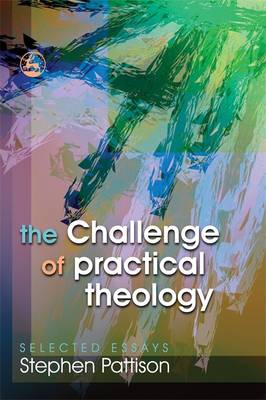
- Retrait gratuit dans votre magasin Club
- 7.000.000 titres dans notre catalogue
- Payer en toute sécurité
- Toujours un magasin près de chez vous
- Retrait gratuit dans votre magasin Club
- 7.000.0000 titres dans notre catalogue
- Payer en toute sécurité
- Toujours un magasin près de chez vous
32,45 €
+ 64 points
Description
This engaging collection of essays showcases the broad sweep of his scholarly and personal interests and experiences, and is a key instalment in his prolific literary output which will be of interest well beyond the confines of academic theology.
The challenging and sometimes controversial ideas contained in this book represent a way forward for practical theology, not because readers will necessarily agree with them, but because of their potential for stimulating lively debate. The lucidity and accessibility of Pattison's style, and the clear passion he has for his subject, mean that these ideas are destined to penetrate non-theological and non-academic circles, making this book a fitting embodiment of the public theology which its author seeks to promote.' - International Journal of Public Theology 'Regardless of our beliefs, the meaning of life becomes more profound during an episode of suffering. Pattison has found a paradigm that allows practitioners to integrate personal, intellectual and theological perceptions - hence the term practical theology. He critically explores the use of terms such as mission, vision and hope that have been transferred from religious parlance into the world of health service management. Managers wanting change sell this message with evangelistic fervour to convert staff and bring them on board.' - Nursing Standard This collection of key writings by Stephen Pattison examines the implicit and explicit beliefs and value systems that guide practice in both religious and non-religious organisations. Pattison draws on experience from his work in many different settings - including community service volunteering, working as a psychiatric hospital chaplain, NHS management and lecturing on pastoral studies - to promote a personal, practical, political and popular approach to theology, which stresses the importance of responsibility and contemporaneity. Broadly themed sections address issues of ethics and value in practice, organisation and management, Christian thought and practice, theology and the Christian tradition, and pastoral and practical theology studies. The author takes a critical stance towards traditional religious thought and practice, and argues the need for reform to make theology more generally accessible and relevant. This volume will be inspirational reading for, among others, care workers, clergy, managers, nurses, counsellors and doctors, as well as students and those involved in the academic study of theology.Spécifications
Parties prenantes
- Auteur(s) :
- Editeur:
Contenu
- Nombre de pages :
- 304
- Langue:
- Anglais
Caractéristiques
- EAN:
- 9781843104537
- Date de parution :
- 15-01-07
- Format:
- Livre broché
- Format numérique:
- Trade paperback (VS)
- Dimensions :
- 161 mm x 232 mm
- Poids :
- 453 g

Les avis
Nous publions uniquement les avis qui respectent les conditions requises. Consultez nos conditions pour les avis.






